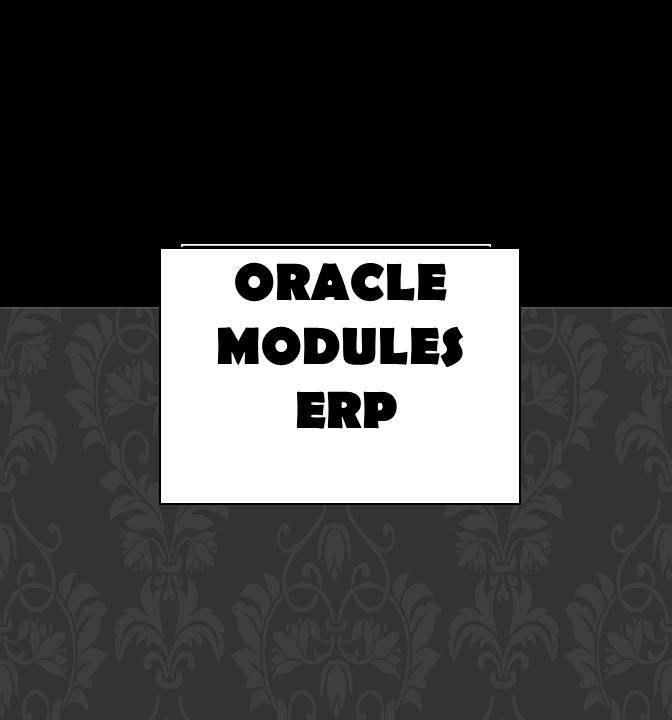oracle modules erp
Introduction:
ERP, or Enterprise Resource Planning, refers to integrated software systems that automate and manage core business processes such as finance, human resources, supply chain, and customer relationship management. oracle modules erp encompasses a wide range of applications specifically tailored to address these critical functions within an organization. oracle modules erp is a comprehensive suite of software modules designed to streamline and optimize various aspects of business operations. From financial management to supply chain logistics, human capital management to customer relationship management, Oracle offers a diverse array of solutions to meet the unique needs of different industries and business models.
1- oracle modules erp
In today’s rapidly evolving business landscape, companies are increasingly turning to Enterprise Resource Planning (ERP) systems to streamline their operations and enhance efficiency. Among the leading providers of ERP solutions, Oracle stands out with its comprehensive suite of modules designed to meet the diverse needs of modern organizations. oracle modules erp covers a broad spectrum of functions essential for efficient business operations. Some of the key modules include:
-
Financial Management
Oracle’s Financial Management modules provide robust tools for managing accounting, budgeting, asset management, and financial reporting. These modules help organizations maintain accurate financial records, track expenses, and optimize cash flow.
-
Human Capital Management
The Human Capital Management modules offer comprehensive solutions for managing workforce resources, including payroll processing, employee benefits administration, talent acquisition, and performance management. These modules enable organizations to attract, develop, and retain top talent while ensuring compliance with regulatory requirements.
-
Supply Chain Management
Oracle’s Supply Chain Management modules streamline the entire supply chain process, from procurement and inventory management to order fulfillment and distribution. By optimizing supply chain operations, organizations can reduce costs, improve efficiency, and enhance customer satisfaction.
-
Project Portfolio Management
The Project Portfolio Management modules enable organizations to effectively plan, execute, and monitor projects across multiple departments or business units. These modules provide tools for project planning, resource allocation, risk management, and performance tracking, ensuring that projects are completed on time and within budget.
-
Customer Relationship Management
Oracle’s Customer Relationship Management modules help organizations build and maintain strong customer relationships by providing tools for managing sales, marketing, and customer service activities. These modules enable organizations to track customer interactions, analyze customer data, and personalize marketing campaigns to drive revenue growth.
2- Benefits of oracle modules erp
Implementing oracle modules erp offers several significant benefits for organizations:
- Streamlined Processes: oracle modules erp automates repetitive tasks and integrates data from various departments, streamlining business processes and improving efficiency.
- Data Integration: By consolidating data from different sources into a single platform, oracle modules erp provides organizations with a unified view of their operations, enabling better decision-making.
- Improved Decision Making: With real-time access to accurate data and analytics, oracle modules erp empowers organizations to make informed decisions quickly and confidently.
- Scalability: oracle modules erp is highly scalable, allowing organizations to easily adapt and grow as their business needs evolve.
- Enhanced Security: oracle modules erp incorporates advanced security features to protect sensitive data and mitigate cybersecurity risks, ensuring compliance with regulatory requirements.
3- Implementation of oracle modules erp
Implementing oracle modules erp involves several key phases:
-
Planning Phase
During the planning phase, organizations assess their business requirements, define project objectives, and develop a roadmap for implementation.
-
Configuration and Customization
Once the planning phase is complete, organizations configure and customize the oracle modules erp software to align with their specific business processes and requirements.
-
Testing
After configuration and customization, organizations conduct thorough testing to ensure that the oracle modules erp system functions as intended and meets the organization’s needs.
-
Training
Training is essential to ensure that employees are proficient in using the oracle modules erp system effectively. Organizations provide comprehensive training programs to employees at all levels.
-
Go-Live
The final phase of implementation involves deploying the oracle modules erp system live across the organization. This phase requires careful coordination and monitoring to minimize disruptions to business operations.
4- Challenges in Implementing oracle modules erp
While oracle modules erp offers numerous benefits, implementing these systems can present several challenges:
- Complexity: oracle modules erp implementations can be complex and time-consuming, requiring significant resources and expertise.
- Resistance to Change: Employees may resist adopting new processes and technologies, leading to resistance to change and potential disruptions to business operations.
- Cost: Implementing oracle modules erp can be costly, requiring investments in software licenses, hardware infrastructure, and implementation services.
- Integration Issues: Integrating oracle modules erp with existing systems and processes can be challenging, leading to compatibility issues and data migration problems.
5- Future Trends in oracle modules erp
Looking ahead, several trends are shaping the future of oracle modules erp:
- Artificial Intelligence: Oracle is incorporating artificial intelligence and machine learning capabilities into its ERP modules to automate routine tasks, enhance decision-making, and drive innovation.
- Cloud Integration: Cloud-based ERP solutions are becoming increasingly popular, offering organizations greater flexibility, scalability, and cost-effectiveness compared to on-premises deployments.
- Mobile Applications: Oracle is developing mobile applications that allow users to access ERP data and perform key tasks from anywhere, anytime, using their smartphones or tablets.
Conclusion:
oracle modules erp plays a crucial role in helping organizations streamline their operations, optimize performance, and achieve their business objectives. By leveraging the comprehensive suite of modules offered by Oracle, organizations can enhance efficiency, improve decision-making, and gain a competitive edge in today’s dynamic marketplace.






